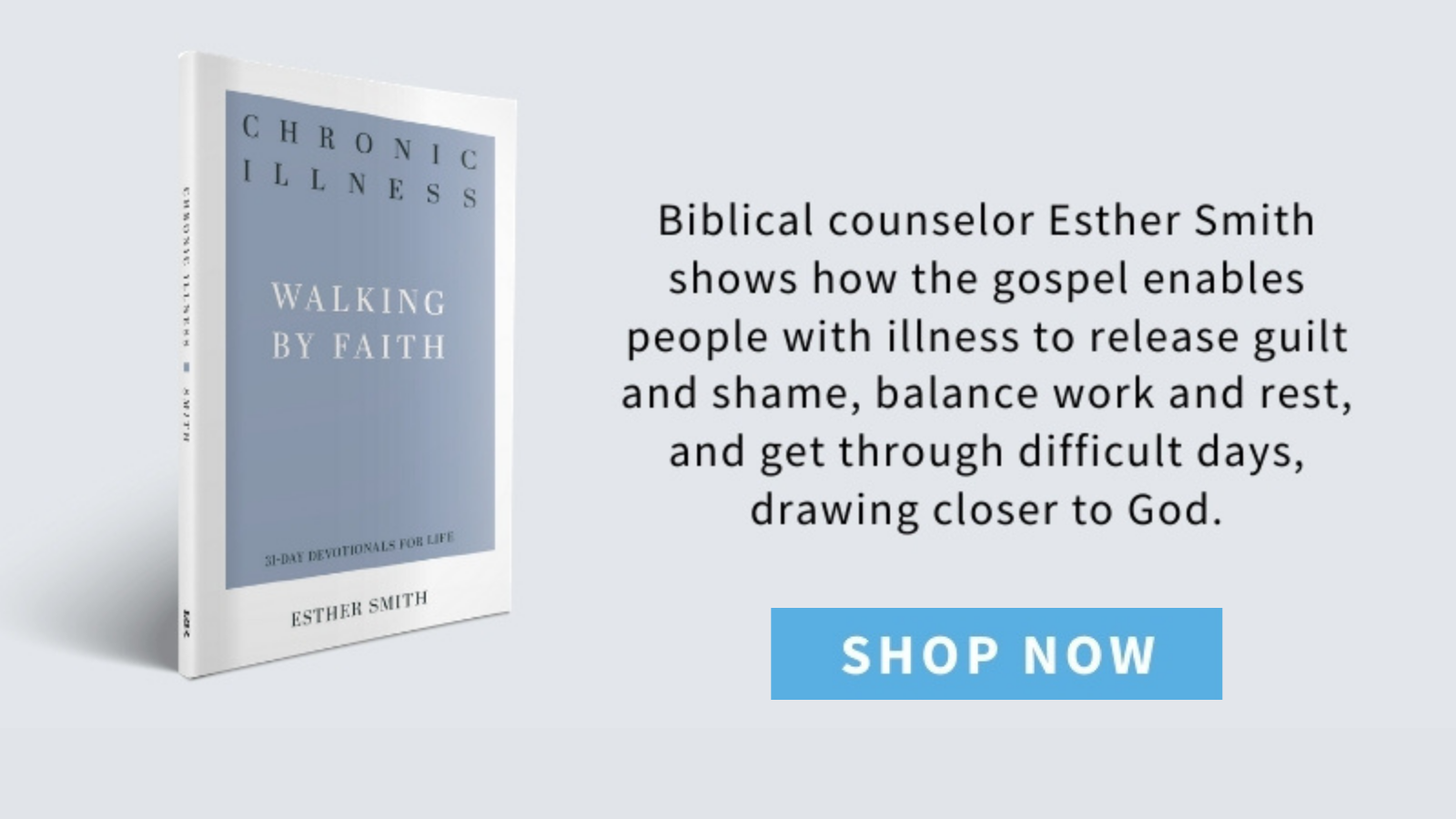Last week, two of my friends had major health crises, and all I could do was listen from afar. The details are not mine to share, but their stories left me with an unsettled feeling in my chest. The level of suffering my friends were enduring did not make sense. These were not stories you could wrap up in an important lesson. As I thought about how to respond to my friends’ pain, the goodness of God felt distant. It felt like God was being cruel, and I did not understand the point.
I feel this way about my own life at times. I have several chronic illnesses, and many days, my symptoms feel meaningless. It’s depressing to struggle in the same ways for so many years and even more depressing when new issues pop up out of nowhere to join a situation that already feels unmanageable. Life with chronic illness is filled with a continuous stream of losses. Small deaths pile on top of small deaths to our work lives, leisure lives, and social lives. As we wrestle with ongoing suffering, extra doses of encouragement and positivity are not enough. What we really need is space to cultivate a regular practice of lament.
1. We need lament because it is a godly response to loss. Think of lament as an honest outpouring of grief. It is in active process in which we recognize difficult thoughts and emotions inside ourselves and allow them to be expressed. The Psalms model this, portraying the words of godly men who called out to God in their pain. Lament is a proper response to loss because our emotions are designed to accurately respond to our circumstances. Many people feel bad or guilty when they don’t respond to suffering with joy and feelings of hope. In reality, it is healthy, appropriate, and godly to feel bad when bad things happen.
2. We need lament because it is honest. When your suffering is long term, it can be difficult to be honest about how you are actually doing. In the company of others, we want to seem as though we have it all together. In the solitude of our own homes, we hide how much we are hurting, because we don’t want to face the full force of our emotional pain.
Fake displays of positivity bear false witness to the real state of our lives, while honest lament helps us to move through our pain and invite others into our sorrow. Without lament it is not possible to live a Romans 12:15 life in which we weep with those who weep. Pretending we are fi ne threatens our own well-being while also removing permission for other people to be honest about their pain in our presence. Our communities are healthiest when we honestly share our hurt with those we trust.
3. We need lament because it is an active response to unfixable suffering. When life goes wrong, our natural urge is to want to fi x the problem. We often don’t know what to do with problems that have no earthly solution. When there is no cure and pain relief won’t be forthcoming and suffering will remain until you die, what in the world are we supposed to do? In these paralyzing moments, the urge to act can be met by practices of lament.
Call out to God in your grief. Identify the cry of your heart. Stop holding back the tears. Spend time on your knees. Listen to music that helps you know what you feel. Write out the words you have been holding back. Rely on the Holy Spirit who intercedes for you when you don’t know how to pray.
4. We need lament because it shows us the path forward when we feel hopeless. Does life with chronic illness feel unfair? Are you angry at God or questioning his character? Does it all feel so very pointless? The answer to these feelings is not to replace them with positive thoughts. We won’t find hope through circumventing pain. The answer is to lean into the questions that seem like too much and feel the feelings we would rather not feel.
Hope is on the other side of lament. Somehow we must face and traverse the tears of today to find the true joy of tomorrow morning (see Ps. 30:5). Lament leads us toward hope when it becomes a vessel that places us in front of God. Our tears compel us to pray. Our fears invite us to trust. Weakness and frailty beckon us to receive God’s strength and look for the living hope we need.
If today promises to be difficult and nothing can fix the pain, turn your urge to act into a prayer of lament. God is on your side.
—Esther Smith, author, Chronic Illness: Walking by Faith


Comments